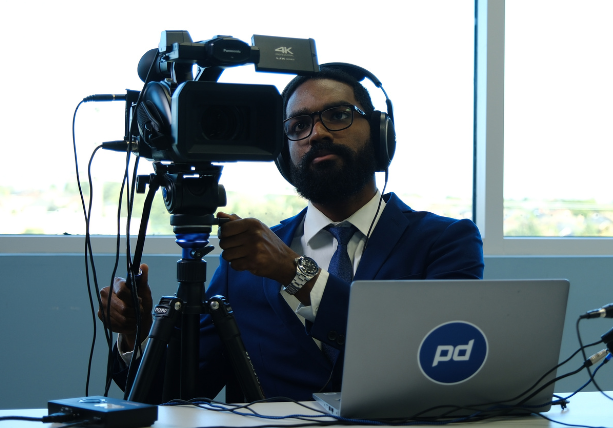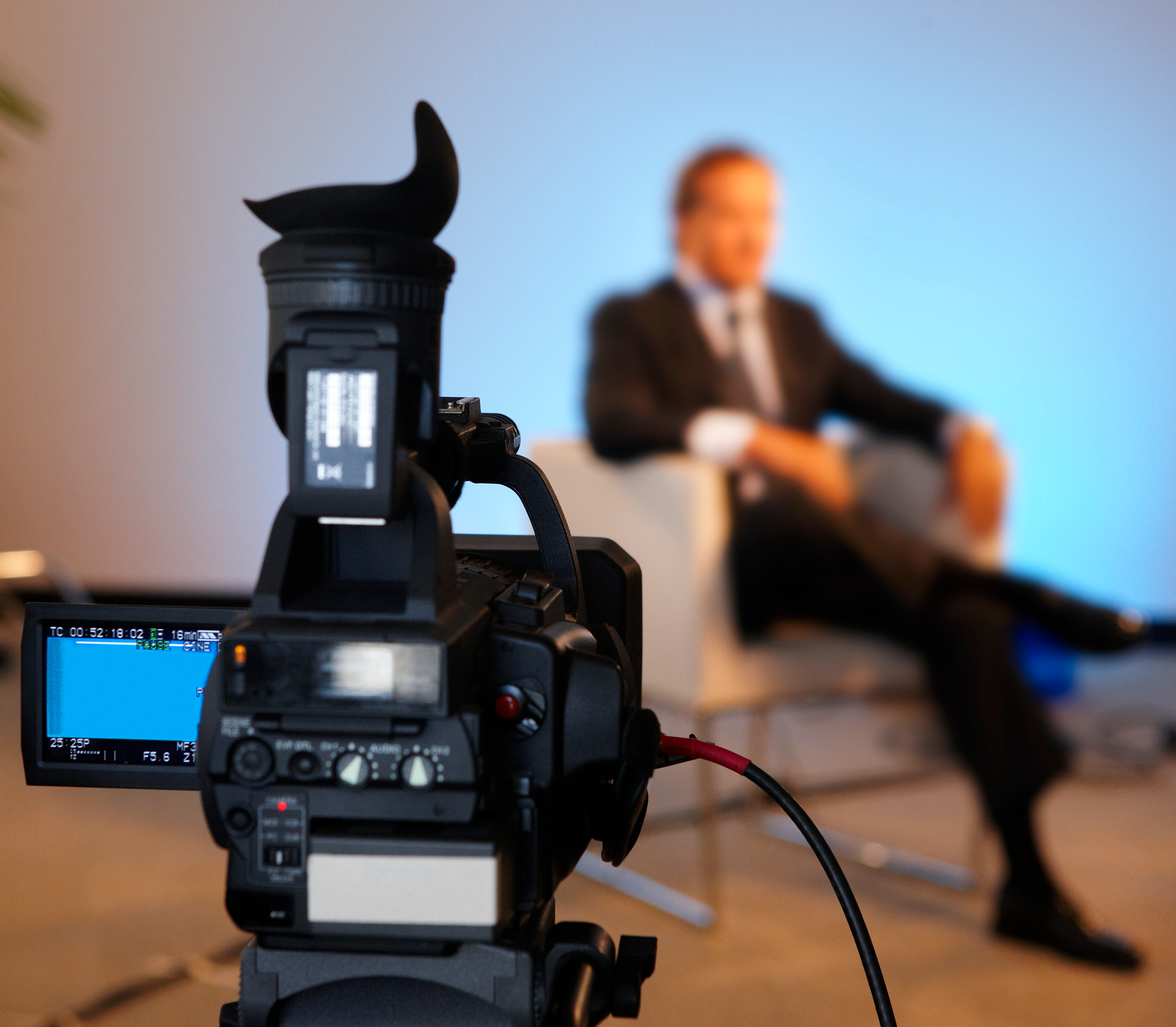The Significance of Legal Video Clip Depositions in Modern Legal Solutions: What You Need to Know
Lawful video clip depositions have actually come to be important in today's lawful landscape. They provide a multidimensional view of witness statements that standard transcripts just can not match. By recording both verbal and non-verbal interaction, these depositions improve the overall understanding of a witness's reputation. The efficiency of video depositions hinges on different aspects, consisting of compliance with lawful standards and finest techniques. Exploring these components reveals their real relevance in modern lawful services
What Are Legal Video Clip Depositions?
Lawful video depositions act as a vital tool in the lawsuits process. They involve recording witness testaments in a video clip format, catching both verbal and non-verbal communication. This technique permits lawyers to record the demeanor, expressions, and reactions of witnesses, offering a richer context for the statement. Commonly carried out in a controlled setting, these depositions are led by attorneys that ask questions while a stenotype reporter records the discussion. The resulting video clip can be crucial for trial preparation, as it allows lawyers to evaluate the integrity of witnesses and improve their strategies. Furthermore, lawful video depositions can be used in numerous legal contexts, ranging from civil disputes to criminal cases. The aesthetic and auditory aspects of video depositions boost the discussion of evidence, making it a crucial part in the modern-day lawful landscape. Overall, they contribute substantially to the efficiency and performance of lawful process.

Benefits of Video Depositions Over Traditional Methods
Video depositions use many advantages compared to traditional methods of taking witness testaments. One significant advantage is the capacity to catch both audio and aesthetic components, giving an extra thorough record of the witness's statements. This double style boosts clearness and allows attorneys to reference details nuances throughout test preparation. Furthermore, video clip depositions help with remote engagement, making it less complicated for witnesses who might be inaccessible for in-person appearances as a result of geographical restrictions or health issues.Moreover, video depositions can expedite the overall deposition process, minimizing the moment and prices related to traveling and logistics. They additionally boost ease of access, as videotaped depositions can be conveniently shared amongst lawful groups and referenced at any type of time. This ease contributes to better instance monitoring and prep work. On the whole, video depositions represent a modern, efficient technique to gathering witness testimonies, straightening with the advancing requirements of the legal profession.
The Function of Body Movement and Tone in Testimonies

In lawful video clip depositions, body movement and tone play vital roles in conveying a witness's trustworthiness and reliability. Nonverbal hints can give insights into a witness's psychological state, influencing how their statement is regarded. Recognizing the effect of these elements is necessary for attorneys and jurors alike when assessing the dependability of a testament.
Nonverbal Communication Insights
While verbal communication is often stressed in lawful testimonies, nonverbal hints such as body language and tone play an essential duty in conveying reliability and emotion. Onlookers of depositions may keep in mind that a witness's stance, motions, and facial expressions can significantly affect perceptions of reliability. For example, consistent eye call may indicate self-confidence, while preventing gaze could suggest dishonesty or discomfort. The tone of voice-- its quantity, speed, and pitch-- can give sensations of genuineness or unpredictability. Lawyers must be in harmony with these nonverbal signals, as they frequently provide essential context that complements talked words. Recognizing these subtleties can improve the efficiency of depositions and influence the end result of legal proceedings.
Emotional Tone Effect
The psychological tone conveyed throughout lawful testimonies greatly impacts how a witness is perceived. Body movement, vocal inflections, and faces play vital roles in shaping the narrative of a testimony. A witness exhibiting self-confidence via consistent eye get in touch with and a tranquil tone can impart a feeling of dependability and interaction. Conversely, signs of anxiousness, such as fidgeting or an unsteady voice, might bring about uncertainty concerning their account. The nuances of psychological expression can influence the analysis of truths, making it important for lawyers to acknowledge these signs. In video depositions, the auditory and aesthetic components combine, stressing the relevance of emotional tone in conveying sincerity and reliability within the legal process.
Trustworthiness and Trustworthiness
An essential factor in establishing reliability and reliability during statements lies in the witness's body movement and intonation. Observers frequently depend on non-verbal hints-- such as eye get in touch with, position, and motions-- to analyze a witness's genuineness. For instance, a witness who maintains eye get in touch with and presents open body movement may be viewed here as even more straightforward and trusted than one who prevents eye get in touch with or appears shut off. In addition, intonation plays a vital role; a consistent, calm tone can reinforce the credibility of the statement, while variations in pitch or quantity might raise questions. Inevitably, the mix of body movement and singing tone considerably affects how a witness's statements are obtained reference and translated in a legal context.
Ideal Practices for Carrying Out Video Clip Depositions
Conducting video clip depositions requires cautious preparation and implementation to ensure a effective and clear discussion of testimony. First, it is essential to select a quiet, well-lit place to decrease distractions and safe optimum video quality. The devices ought to be checked ahead of time, consisting of video cameras, microphones, and illumination, to avoid technological issues throughout the deposition.Next, celebrations entailed must review the layout and treatments ahead of time, ensuring that everyone comprehends their functions. The deponent ought to be oriented on the process, consisting of how to respond plainly and concisely.Additionally, preserving a professional temperament throughout the session is essential. This includes abstaining from speaking over each other and validating that all questions are routed properly. It is critical to record the deposition in a style that enables for easy playback and evaluation, protecting the stability of the testimony for future use.
Lawful Considerations and Conformity Issues
Just how do legal considerations and compliance concerns affect the effectiveness of video depositions? Attorneys should navigate a complicated landscape of regulations, making sure that video clip depositions stick to jurisdictional regulations and standards. Compliance with regulations concerning privacy, consent, and recording techniques is necessary. As an example, obtaining explicit consent from all events included is necessary to stay clear of legal repercussions.Additionally, the admissibility of video proof in court can rest on compliance with step-by-step requirements. Making certain that the devices made use of fulfills technological criteria is additionally crucial, as low quality can weaken the deposition's reliability.Moreover, lawyers have to understand any specific state laws that govern video depositions, as these can vary greatly. Failure to deal with these factors to consider can not just endanger the integrity of the deposition but additionally affect the overall instance method, ultimately influencing the client's lawful outcomes.
Exactly How Video Depositions Influence Jury Perception
While video depositions can work as powerful tools in legal proceedings, their impact on court perception is considerable. The acoustic and aesthetic elements of video clip recordings offer jurors with a more extensive understanding of witness demeanor, credibility, and psychological actions. This multimedia approach can improve the jurors' capacity to assess the integrity of testimony compared to standard text-based transcripts.Moreover, video clip depositions permit jurors to observe body movement, tone of voice, and facial expressions, all of which can impact their interpretation of the witness's declarations. The presence of a witness on display can humanize them, fostering compassion and link, which might sway jurors' point of views. On the other hand, a witness that shows up unreliable or evasive on video might bring about unfavorable perceptions that influence a court's decision. Eventually, the dynamic nature of video depositions plays a crucial role in forming just how jurors analyze evidence and reach their decisions.
The Future of Video Depositions in Legal Practice
As improvements in innovation proceed to reshape the legal landscape, the future of video depositions is positioned for considerable advancement. Innovations such as expert system, virtual fact, and enhanced video conferencing tools are anticipated to simplify the deposition procedure and enhance availability. Lawyers might make use of AI-driven analytics to analyze witness integrity and situation strength more effectively.Moreover, the assimilation of virtual truth might enable courts to experience immersive simulations of depositions, providing deeper context and understanding. Additionally, the pattern towards next page remote depositions is likely to persist, providing better versatility for attorneys and customers alike.As remote work ends up being significantly stabilized, video depositions will likely become typical method, minimizing expenses and time constraints connected with standard techniques. Overall, these technical innovations promise to enhance the efficiency, efficiency, and ease of access of video clip depositions in legal practice, eventually transforming exactly how lawful specialists plan for test.
Often Asked Inquiries
Just How Much Do Lawful Video Depositions Normally Price?

Can Video Depositions Be Utilized in Any Type Of Kind of Situation?
Video clip depositions can be made use of in different sorts of cases, including civil, criminal, and family members legislation. Their adaptability allows lawyers to existing witness testimonies effectively, adjusting to the particular demands of various lawful scenarios.
What Tools Is Required for a Video Deposition?
To carry out a video clip deposition, necessary tools includes a high-grade camera, microphone, lights, and a trustworthy recording device. Additionally, a computer system with editing software might be essential for post-production and formatting the last video clip.
Just how Long Does a Typical Video Deposition Last?
A typical video deposition lasts in between 2 to four hours, depending on the intricacy of the situation and the number of concerns postured. Prolonged sessions might occur, yet breaks are generally included for participant comfort.

Are Video Depositions Admissible in Court?
Video clip depositions are normally permissible in court, supplied they follow legal standards and rules of evidence. Their usage improves clarity and protects witness statement, aiding in the judicial process during tests and hearings. Lawful video depositions have ended up being important in today's lawful landscape. In addition, legal video clip depositions can be made use of in numerous lawful contexts, varying from civil disagreements to criminal instances. In addition, video clip depositions help with remote participation, making it simpler for witnesses who might be inaccessible for in-person looks due to geographical restraints or wellness issues.Moreover, video depositions can quicken the general deposition process, lowering the time and expenses associated with traveling and logistics. Guaranteeing that the equipment utilized fulfills technical standards is also important, as bad high quality can threaten the deposition's reliability.Moreover, lawyers must be mindful of any type of certain state legislations that regulate video depositions, as these can vary considerably. Furthermore, the trend toward remote depositions is likely to linger, using better flexibility for customers and attorneys alike.As remote job ends up being significantly normalized, video clip depositions will likely become basic method, minimizing expenses and time restraints associated with conventional techniques.
Comments on “Understanding the fundamentals of legal video depositions for legal professionals”